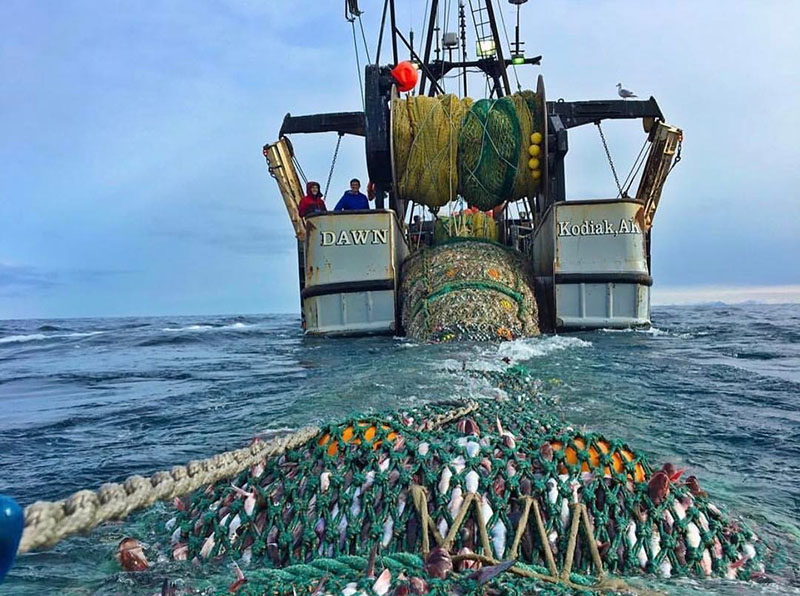The annual meeting for the Alaska Seafood Marketing Institute comes to a close Thursday, Oct. 10, as the board is asked to consider a range of new topics coming out of the organization's committee meetings over the last two days.
ASMI developed the RFM program, using the Food and Agriculture Organization of the United Nations sustainability guidelines, as a response to a widespread extrication of Alaska seafood from the Marine Stewardship Council's expensive (and sometimes problematic) certification program.
The RFM committee estimates the annual cost for Alaska's eight certified fisheries (totaling 27 species) will be about $325,000.
Several committees addressed the incoming competition of plant- and cell-based proteins, as well as ASMI's bylaws that restrict its promotion of mariculture products — including kelp.
"We're working with various state agencies to grow," said Julie Decker, co-chair of the Alaska Mariculture Task Force.
"I really support this. I think ASMI should get involved in it," said Jack Schultheis, ASMI board chairman and general manager of Kwik'Pak Fisheries in Emmonak.
Another frequent request is for ASMI to address global concerns about climate change. Harvester and direct marketer Cynthia Wallesz of Petersburg, Alaska, asked the communications committee if the organization might be able to address "concerns from buyers about climate change, ocean conditions and water quality. Are other people hearing those concerns?"
ASMI's Technical Program Director Michael Kohan announced that her program is working on a white paper on climate change and is comfortable being a source of information for all the ASMI programs and committees as needed.
Nicole Kimball, vice chair of the Communications Committee and vice president of Alaska Operations for the Pacific Seafood Processors Association, informed the committee that preliminary numbers for Gulf of Alaska Pacific cod are not good and the data shows the biomass "falling below one of the critical thresholds. It may mean no directed fishing," and could result in the fishery being listed as overfished.
This shift in Pacific cod biomass aligns with warm-water events in the Gulf of Alaska.
Despite an outlook with some real challenges ahead, ASMI's mission remains to promote the certified sustainability of Alaska fisheries.







.jpg.small.400x400.jpg)